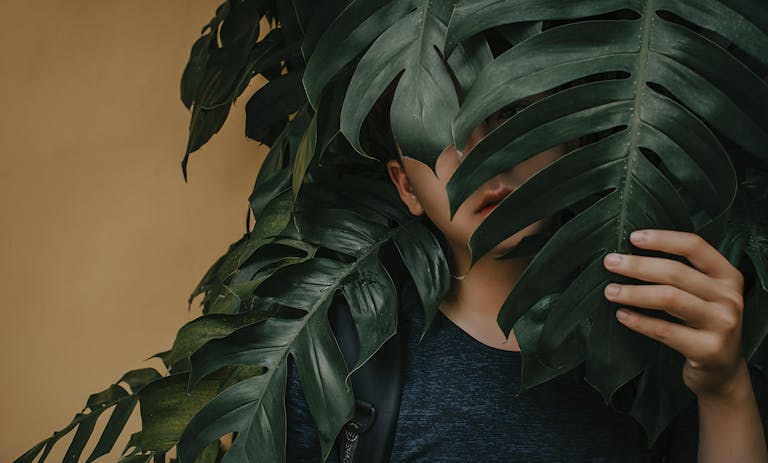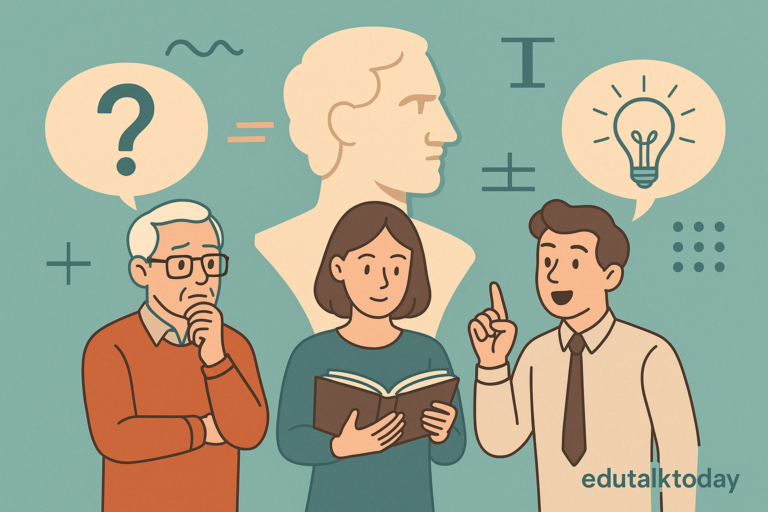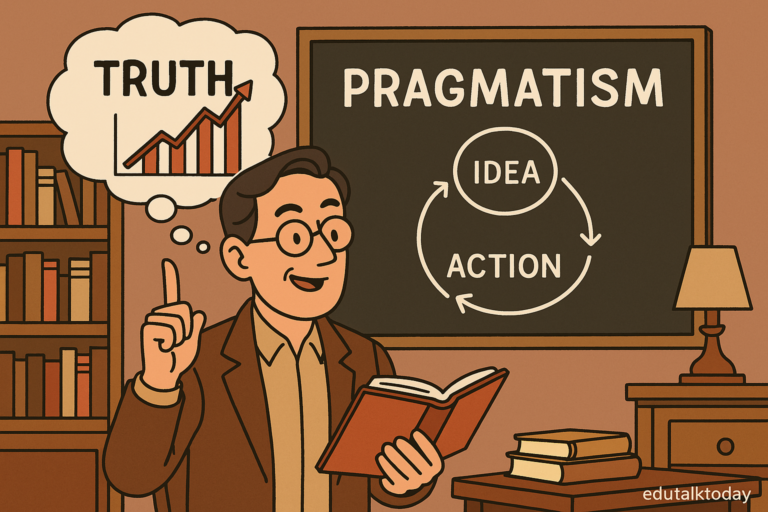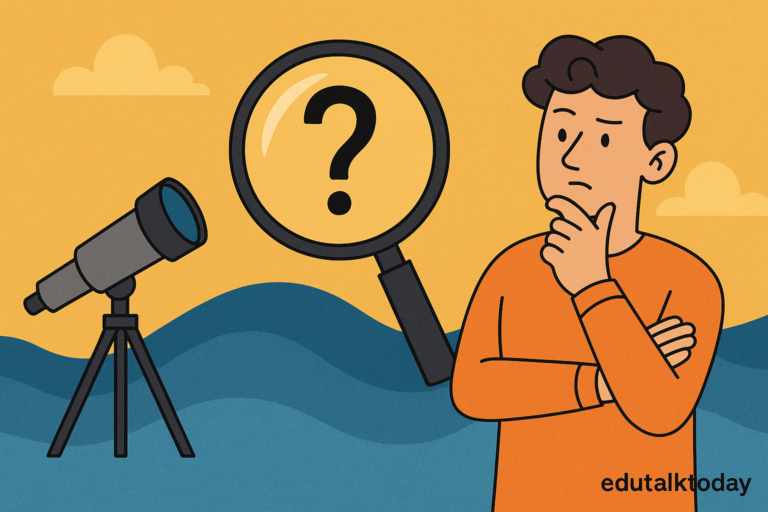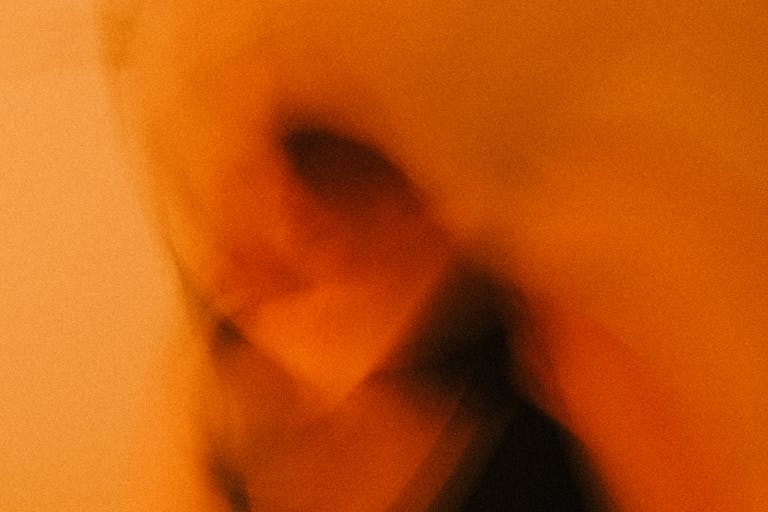Can Life’s Purpose Be Found Through Existential Creation or Through Religious Faith
Searching for life’s purpose is one of those questions that sneaks into quiet moments—on long walks, late nights, or when life throws us a curveball. Some people find answers in religious faith, where purpose feels like a gift handed down by God or tradition. Others lean toward existential creation, deciding that if life doesn’t come preloaded with meaning, then it’s up to us to write our own story.
Honestly, both approaches have shaped the way humans wrestle with meaning for centuries, and they still shape conversations today—sometimes in harmony, sometimes in conflict. The truth is, there’s no quick fix to the question of why we’re here, but exploring these different ways of thinking gives us fresh ways to reflect on our own lives.
And maybe, in the mix of freedom and faith, we’ll stumble on a way of living that feels deeply our own.
Making Our Own Purpose
When I first read Jean-Paul Sartre’s claim that “existence precedes essence,” I had to pause. What he meant is pretty radical: we’re not born with a ready-made purpose or blueprint. Instead, we’re tossed into the world, and it’s our choices that shape who we are. That can feel incredibly liberating—you get to be the author of your own life—but also a little terrifying. No cosmic roadmap, no prewritten manual. Just you, your decisions, and the ripple effects they create.
Take an everyday example. Imagine two people working the same job at a bookstore. One sees it as just a paycheck, a way to get by. The other sees it as part of a bigger project: sharing knowledge, connecting people with stories, creating a warm space in their community. Same setting, wildly different meanings. Existential creation is about framing life so it matters to you, not necessarily to some higher order.
The weight of freedom
Here’s the catch though: when meaning is something we create, we also carry the responsibility. Sartre called this “condemned to be free.” A little dramatic, sure, but think about it—if no one’s telling you what’s right or wrong, what’s meaningful or pointless, then every choice is yours to own. That’s empowering but heavy too.
Ever had to make a huge decision—like whether to stay in a relationship, move to a new city, or quit a steady job? That dizzying mix of excitement and dread is the existential burden of freedom. There’s no ultimate answer key waiting for you. You’ve got to pick, act, and live with it.
The absurd and how we respond
Albert Camus, another big voice in existential thought, talked about the “absurd.” It’s that clash between our craving for meaning and the universe’s silence. Imagine shouting into a canyon, waiting for an answer, and hearing nothing back. That’s life, Camus said. But instead of despairing, he suggested we embrace it. His famous example is Sisyphus, the guy from Greek mythology cursed to push a boulder up a hill forever. Camus didn’t say, “poor Sisyphus.” He said, “we must imagine Sisyphus happy.” Why? Because even in repetitive, absurd struggle, humans can choose to see value, to laugh at the absurdity, to claim their task as their own.
You’ve probably had Sisyphus moments—studying for exams that never seem to end, doing laundry for the millionth time, or going through work tasks that feel endless. Existentialists would say the trick isn’t to escape the grind but to inject your own sense of purpose into it.
Building blocks of self-made meaning
So, how do we actually build meaning when it’s not handed to us? Existentialists often point to a few things:
- Creativity – Artists, writers, and musicians embody this. They pour themselves into work that reshapes the world or at least makes someone pause and feel.
- Relationships – It’s not all solitary. The connections we choose, the love we give, the communities we form, all become anchors of purpose.
- Projects and passions – Whether it’s starting a business, raising a child, training for a marathon, or even gardening, the act of committing to something shapes your sense of why you exist.
Take Viktor Frankl, for instance. He wasn’t strictly an existentialist, but his book Man’s Search for Meaning showed how purpose—whether through love, work, or even suffering—helped people survive the horrors of concentration camps. That’s a staggering real-world example of how choosing meaning, even in chaos, can keep us alive.
The tension we can’t escape
Here’s where it gets interesting: even if we fully embrace this “create your own purpose” mindset, doubt creeps in. What if the meaning we choose is trivial? What if it crumbles when life gets tough? That nagging uncertainty is part of the existential package deal. Unlike religious faith, where purpose can feel rooted in something eternal, self-made meaning always carries the risk of fragility.
But maybe that’s the point. Maybe the beauty of existential creation is that it’s fragile, it’s temporary, it’s always in progress. There’s something honest about that. Life isn’t carved in stone—it’s a canvas we’re constantly repainting.
And when I think about it, that’s both the scariest and most exciting part of being human. We don’t arrive in the world with a label or a destiny. But we do get to experiment, to fail, to rebuild, to choose again. And in those choices, big and small, we craft lives that might not have cosmic guarantees but feel profoundly real.
Finding Purpose Through Faith
If existential creation is all about rolling up your sleeves and making your own meaning, religious faith commitments feel almost like the opposite. Instead of crafting purpose from scratch, you’re handed a story that’s bigger than yourself—one that says, “Here’s why you’re here, here’s what matters, and here’s where you’re going.” For many people, that’s not just comforting; it’s transformative.
When I talk with friends who are deeply rooted in their traditions, there’s a kind of groundedness in their worldview that I can’t ignore. They don’t spend sleepless nights wondering whether their lives matter, because their faith already tells them: it does. God cares. The universe has a design. Their actions fit into a larger plan. It’s like they’re working on a puzzle where they know the final picture on the box, even if they don’t know exactly how each piece fits yet.
What faith offers at its core
Most religions, despite their differences, share some powerful ways of shaping life’s purpose:
- A sense of calling – Think of the biblical idea of vocation, or the Islamic concept of serving Allah in all things. Your life is meaningful because you were created with intent.
- Moral and ethical clarity – Faith traditions lay out rules and values: don’t lie, care for the poor, honor your parents. These aren’t just guidelines; they’re anchors that give everyday choices weight.
- Community and belonging – Walk into a church, mosque, synagogue, or temple, and you’re rarely alone. Faith connects you with people who share rituals, holidays, and hopes. That shared story creates an instant sense of “we.”
- Hope of transcendence – Whether it’s heaven, enlightenment, nirvana, or union with God, many religions point beyond this life. Death isn’t the end but part of a bigger journey.
That’s pretty powerful, right? When you’re tired of carrying the burden of “make your own meaning,” faith can feel like resting in something much steadier.
The comfort and stability of belief
One of the strongest appeals of faith is its stability. If life’s storms are tossing you around, it’s reassuring to believe that the waves aren’t random—that God has a hand on the wheel. I’ve seen this especially in times of suffering. A friend of mine lost her father, and while I was fumbling for words, she told me, “I don’t understand this, but I know God is still good.” That kind of conviction can hold you together when everything else feels like it’s falling apart.
And rituals matter here too. Weekly services, daily prayers, annual celebrations—they’re like rhythm and structure for the soul. In a world that often feels chaotic, faith communities give you practices that remind you of who you are and what you’re part of.
The struggles that come with faith
Of course, religious faith isn’t a free pass to eternal peace. Doubt creeps in. Even the most committed believer can wake up one morning and whisper, “What if none of this is true?” Faith often requires wrestling. Think of Mother Teresa’s letters where she confessed to long periods of spiritual darkness despite her outward devotion. That doesn’t make faith weaker; if anything, it shows that questioning is part of the journey.
There’s also the issue of exclusivity. Many religions claim theirs is the only true path. For seekers in a pluralistic world, that can feel suffocating. What happens if you’re drawn to the teachings of Jesus but also inspired by Buddhist meditation? Or if your community pressures you into a faith identity that doesn’t sit right in your heart? The strength of tradition can sometimes feel like a cage.
And then there’s interpretation. A religious text might inspire one person toward compassion and another toward judgment. Faith can unify, but it can also divide. That tension is real, and anyone engaging seriously with religious commitments has to face it.
The living appeal of faith today
Even with all these complexities, faith continues to shape millions of lives—and not just in old-fashioned ways. Many young people are redefining what belief looks like: joining interfaith groups, blending traditional worship with modern art or music, or practicing rituals alongside mindfulness and yoga. Religious faith, for them, isn’t static. It’s a living, breathing thing that evolves while still offering the grounding that only faith can give.
So if existential creation is like building a house with your own hands, religious faith is like moving into a home that’s already been standing for centuries. Both have their upsides and challenges. But faith gives something existential freedom can’t always match: the sense that your story was written long before you were born, and it’s a story that matters.
Living in the Tension
Here’s where it gets fascinating: a lot of us don’t live fully in one camp. We’re not strict existentialists who shrug off every grand narrative, and we’re not unshakable believers who never doubt. Most of us are somewhere in the messy middle—trying to weave together threads of freedom and faith.
The modern blend
Take the friend who calls herself “spiritual but not religious.” She grew up in church but left because the dogma felt stifling. Still, she meditates daily, believes in a higher power, and volunteers because she feels “called” to help others. That’s faith language mixed with existential choice. She’s not accepting a tradition wholesale, but she’s not discarding faith either.
Or think about the person who identifies as religious yet sees their practice as an existential choice. I know someone who goes to Mass every week, not just because it’s what their family expects, but because they’ve wrestled with doubt and decided—again and again—that this is the way they want to orient their life. Their faith is still a gift, but it’s also an ongoing decision.
Why the tension matters
Living in this in-between space can feel confusing, but it can also be deeply human. On one side, existential freedom reminds us that we’re active participants in shaping our lives. On the other, faith grounds us in something beyond our own fragile choices. The tension itself is meaningful because it keeps us from sliding into extremes—either the despair of absolute freedom or the complacency of unexamined faith.
In fact, many thinkers suggest that this wrestling is what makes for authentic belief. Søren Kierkegaard, often called the father of existentialism, saw faith as a leap—not blind, but deliberate, made in full awareness of doubt. That leap, he argued, is only real if it comes from personal choice. In other words, faith that’s chosen in freedom might be stronger than faith that’s inherited without question.
Practical ways people navigate both
Let’s make this less abstract. Here are some real-life ways people live between existential creation and religious faith:
- Choosing rituals freely – Some folks embrace religious holidays or prayer practices even if they don’t buy into every doctrinal detail, because these rituals give their life rhythm and depth.
- Reframing religious teachings – Instead of seeing commandments as rigid rules, they treat them as guiding principles, open to interpretation.
- Holding doubt alongside belief – They don’t see doubt as a failure but as part of faith’s texture. It keeps them humble and searching.
- Mixing traditions – You’ll find people blending Christian liturgy with Buddhist meditation, or Islamic prayer with mindfulness practices. For them, meaning is richer when drawn from multiple wells.
- Revisiting choices regularly – Like existentialists, they see life as a series of ongoing choices. Even faith is revisited, reaffirmed, or reshaped as they grow.
This blending doesn’t always sit well with institutions that prefer clear boundaries, but for individuals, it can create a spiritual life that feels both grounded and dynamic.
The beauty of the middle ground
For me, the most inspiring thing about living in this tension is that it fosters humility. When you admit that you don’t have all the answers—that maybe you need both freedom and faith—you’re less likely to judge others who walk a different path. You can appreciate the courage it takes to invent meaning from scratch, and you can admire the trust it takes to surrender to a higher power.
Maybe this is the sweet spot: not choosing one side and rejecting the other, but holding both as lenses through which to view the mystery of being alive. The tension might not resolve, but maybe that’s the point. Life’s big questions rarely come with neat conclusions. They come with conversations, experiments, doubts, and commitments that evolve as we do.
And perhaps that’s where purpose itself is found—not in a final answer, but in the ongoing dance between freedom and faith.
Final Thoughts
So where does all of this leave us? Somewhere in the middle of two great traditions—one that says “make meaning with your own hands” and another that whispers “receive meaning as a gift.” Neither is perfect, neither is easy, but both can shape a life worth living. Maybe the real task isn’t to pick a side, but to keep asking, keep choosing, and keep believing—however that looks for you. In that ongoing search, we discover a purpose that feels honest, alive, and uniquely our own.
